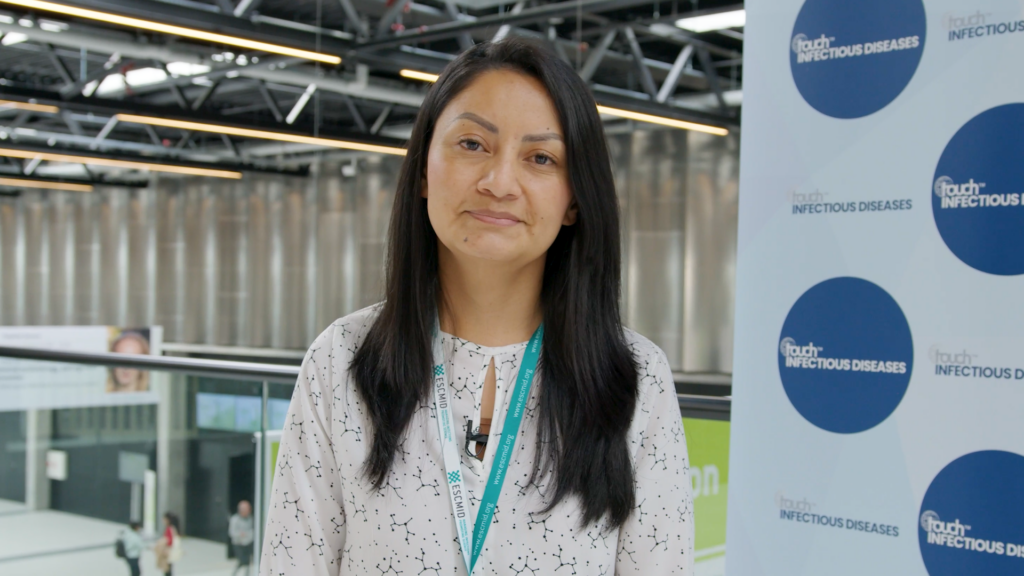 Dr Dariusz Hareza (Northwestern University Feinberg School of Medicine, Chicago, IL, USA) provides his highlights from the recent ESCMID Global 2025 conference in Vienna, Austria. With a focus on antibiotic resistance (AMR), his highlights included Kazakhstan’s innovative AMR efforts in primary care, a keynote on global surveillance and sessions exploring novel tools like CRISPR and AI in outbreak response. For Dr Hareza, the conference offered both practical insights and a forward-looking perspective on tackling infectious disease challenges through global collaboration.
Dr Dariusz Hareza (Northwestern University Feinberg School of Medicine, Chicago, IL, USA) provides his highlights from the recent ESCMID Global 2025 conference in Vienna, Austria. With a focus on antibiotic resistance (AMR), his highlights included Kazakhstan’s innovative AMR efforts in primary care, a keynote on global surveillance and sessions exploring novel tools like CRISPR and AI in outbreak response. For Dr Hareza, the conference offered both practical insights and a forward-looking perspective on tackling infectious disease challenges through global collaboration.
Q1. What did you find most rewarding about attending ESCMID Global 2025?
I always enjoy going to meetings like this because there is the opportunity to meet different kinds of people I wouldn’t normally cross paths with. This conference was particularly international – it was actually the first time I’d been to a meeting where there was such broad representation from around the world, including attendees from non-governmental organizations, government bodies and intergovernmental organizations.
Despite there being over 16,000 attendees, it still felt small. There were small-group discussions in informal spaces, sometimes even with WHO staff casually joining in. It created a collegial, relaxed environment where people felt free to speak and share ideas.
Q2. What were your highlights and standout sessions?
One session I walked into by chance was titled ‘People-centred approach to strengthening the AMR response at primary care’. It focussed on Kazakhstan’s initiatives to reduce antibiotic resistance in primary care. I hadn’t heard much about work in that region before, but their team was incredibly motivated, navigating limited resources and working closely with the government to make real progress. It was one of the most engaging sessions I attended.
One keynote that really stood out was entitled ‘Infectious disease challenges in an ever-changing environment’ by Pamela Rendi-Wagner, Director of the European Centre for Disease Prevention and Control. She talked about the importance of global collaboration and empowering local response to outbreaks. Her emphasis on a trusted, collaborative global surveillance system was particularly compelling.
Q3. What was your main area of focus during the meeting?
Antimicrobial resistance, which is the core of my work. One standout session was titled ‘This bacterium might harbour AmpC, what should I do?!’ from the lead author of the MERINO trial, who clarified some common misinterpretations of the study’s findings. It was refreshing to hear his reflections – including how he might have phrased things differently – and his commentary on managing AmpC producers, which remains a complex issue.
Several sessions focused on the One Health approach, titled ‘One Health means resistance everywhere’ (Session OS001), highlighting the interconnectedness of human, animal and environmental health. Antibiotic resistance is not confined to hospitals – it emerges in veterinary practice, spreads through pharmaceutical waste, and persists in the environment. One particularly striking presentation examined how migratory birds can carry resistant bacteria across continents (Session O0005: ‘Exploring the plasmidome of 3rd generation cephalosporin-resistant Enterobacterales in wild birds: Insights into horizontal gene transfer and AMR dissemination’). Strains typically found in hospital settings were identified in birds flying from Africa to Scandinavia, offering a vivid reminder of how resistance can move across ecosystems and borders.
There was a session in the “Year in Review” series that looked at using CRISPR-Cas (PMID: 40176174) systems to target resistance genes or virulence factors. The idea is still at the conceptual stage, but it’s an exciting direction. Another concept that came up was artificial intelligence – particularly in outbreak modeling (PMID: 39972226). During large-scale events like COVID-19, AI could potentially synthesize data rapidly and help shape real-time responses. It hasn’t yet been widely implemented in infectious disease, but it has clear potential.
Q4. What were your overall impressions coming away from the meeting?
It was both informative and energizing. Many of the ideas presented are still in development, but they point to exciting possibilities for the future – whether that’s improving communication around clinical trials, better integrating surveillance systems, or using new technologies like CRISPR and AI to address longstanding challenges in antimicrobial resistance and infectious diseases more broadly.
About Dariusz Hareza
Dr Dariusz Hareza is Assistant Professor of Medicine (Infectious Diseases) at the Northwestern University Feinberg School of Medicine, Chicago, IL, USA. He is working with mentors to research antimicrobial resistance (AMR). He is also a fellow at the NIH-funded Antibacterial Resistance Leadership Group (ARLG) and recently finished an infectious diseases fellowship at Johns Hopkins University, Baltimore, MD, USA, where he received a master’s degree in clinical investigation. His research involves the molecular epidemiology and clinical outcomes in extended-spectrum beta-lactamase producing Enterobacterales and difficult-to-treat Pseudomonas aeruginosa.
Disclosure: Dariusz Hareza has received grant/research support from the National Institute of Allergy and Infectious Diseases UM1AI104681.
Cite: Highlights from #ESCMIDGlobal2025: Dr Dariusz Hareza on antibiotic resistance beyond borders. touchINFECTIOUS DISEASES. May 9th, 2025
SIGN UP to touchINFECTIOUS DISEASES!
Join our global community today for access to thousands of peer-reviewed articles, expert insights, and learn-on-the-go education across 150+ specialties, plus concise email updates and newsletters so you never miss out.










